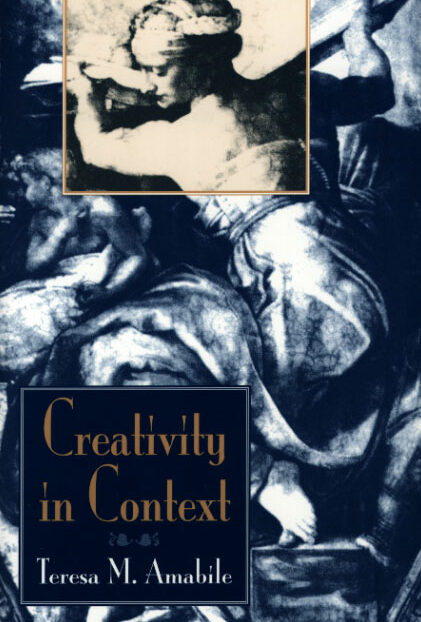Creativity in Context

Creativity in Context (1996) is an update of The Social Psychology of Creativity (1983), a classic text for researchers, students, and other interested readers.
Creativity in Context incorporates extensive new material, going far beyond the original to provide a comprehensive picture of how the motivation for creative behavior, and creativity itself, can be influenced by the social environment. Teresa Amabile describes new findings from her own research and the work of many others in the field, detailing not only the ways in which creativity can be killed by social-psychological influences, but also the ways in which it can be maintained and stimulated.
With this 1996 update, the research and the theory moved beyond a narrow focus on the immediate social environment to a consideration of broad social influences in business organizations, classrooms, and society at large; beyond a documentation of social influences to a consideration of the cognitive mechanisms by which social factors might impact creativity; and beyond subject populations consisting of children and college students to an inclusion of professional artists, research scientists, and other working adults.
Teresa describes a greatly expanded set of methodologies for assessing creativity and introduces a set of methodologies for assessing the social environment for creativity in non-experimental studies. The book maintains a clear focus throughout on a comprehensive view of creativity: how the social context can influence motivation and how motivation, in conjunction with personal skills and thinking styles, can lead to the expression of creative behavior within that context. The result is a clarified theory of how creativity happens, with strong implications for supporting and increasing essential aspects of human performance.

“Teresa Amabile’s Social Psychology of Creativity is universally acknowledged to be a classic in the empirical study of creativity. In this thorough and thoughtful update, Amabile chronicles the intriguing evolution of the most sustained research program on creativity of our time.”
– HOWARD GARDNER, Harvard University Graduate School of Education, author of Frames of Mind: The Theory of Multiple Intelligences and Creating Minds
